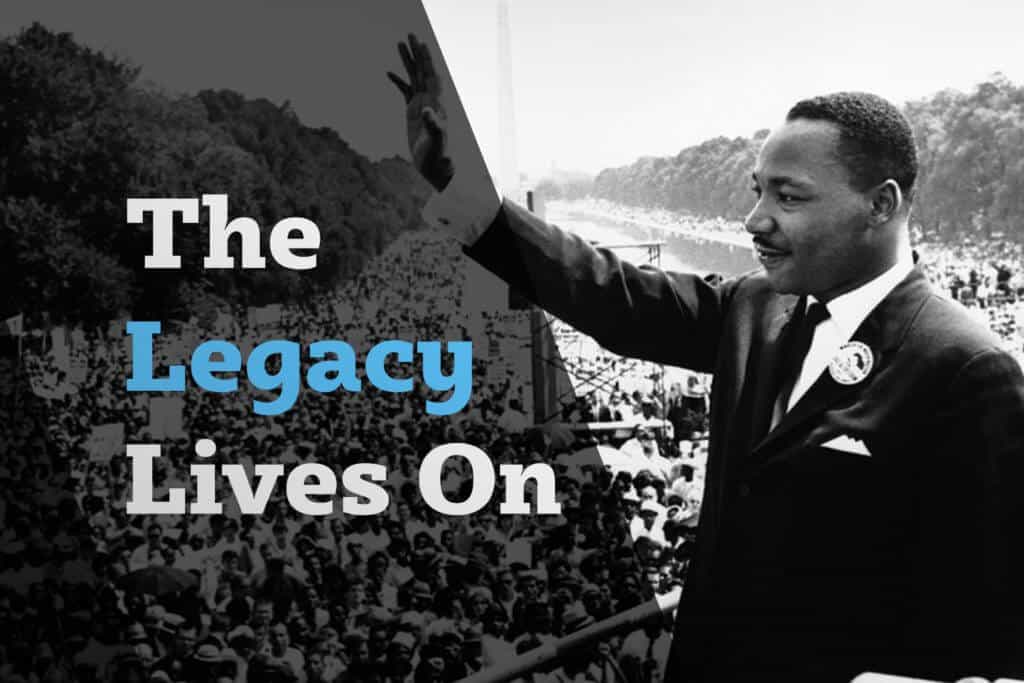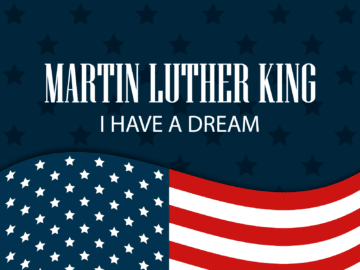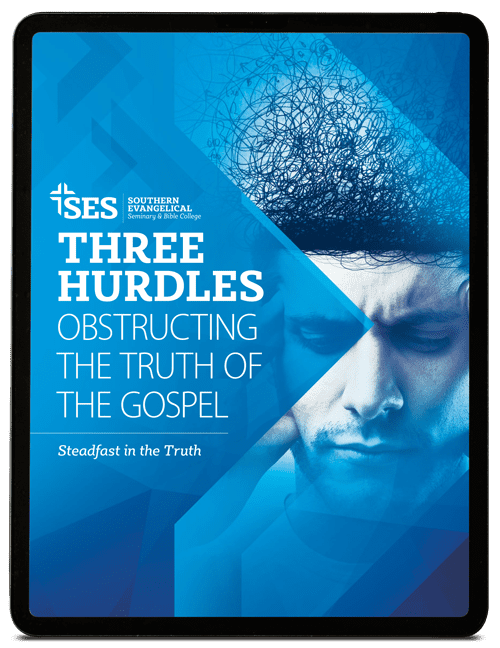Today, April 4, 2018, we commemorate the 50th anniversary of one of the darkest, most tragic events in American history—the assassination of Dr. Martin Luther King Jr., cut down in the prime of life at just 39 years of age.
The great Civil Rights leader and Baptist minister was in Memphis to show solidarity with sanitation workers marching for better working conditions and higher wages.
Dr. King had endured many death threats from racists for most of his ministry. People evil enough to blow up little girls in a Birmingham church would have no compunction about murdering the undisputed leader of the 1960s Civil Rights Movement even if he was committed to nonviolence.
It is almost as if Dr. King had a premonition that his death was at hand. It is impossible to watch the film of Dr. King speaking to the overflow crowd in Memphis that fateful night so long ago and not have chills run down your back:
I just want to do God’s will and He’s allowed me to go up to the mountain. And I’ve looked over and I’ve seen the Promised Land. Like anybody I would like to live a long life—longevity has its place. But I’m not concerned about that now. I just want to do God’s will. I may not get there with you. But I want you to know tonight that we, as a people, will get to the Promised Land. And so I’m happy tonight; I’m not worried about anything; I’m not fearing any man. “Mine eyes have seen the glory of the coming of the Lord.”
The next day Dr. King was ruthlessly murdered.
I can still remember where I was when I heard the heart-breaking news. I was a junior at
Princeton, and I had been closeted away in my study carrel deep in the bowels of the Firestone Library researching the Montgomery Bus Boycott (which had been led by Dr. King) for a paper I was writing for my American Civilization class).
I came up for air about 10:00 p.m. and heard the devastating news of Dr. King’s assassination. I couldn’t believe it. I was heart-broken. Dr. King had become a personal hero of mine, a Baptist minister who was confronting terrible evil in society, but doing so redemptively in the spirit of Christian love.
In his “I Have a Dream” speech, delivered at the Lincoln Memorial, August 28, 1963, Dr. King had presented the nation with a soaring and inspiring vision of a country no longer riven by racial strife, but a unified people in a society in which people “will not be judged by the color of their skin, but by the content of their character.”
All Americans owe an incalculable debt of gratitude to Dr. King for his heroic life and unifying and reconciling vision for our nation. In his very perceptive Time essay on Dr. King’s speech, Jon Meacham pointed out that Dr. King “gave us a standard against which we could forever measure ourselves and our nation.” Meacham observed that “so long as his dream proves elusive, then our Union remains imperfect.”
Conversely, as long as Dr. King’s dream lives in our hearts and minds, vibrant and compelling, our nation can move ever closer to keeping the promises of its founding documents and move ever closer to that more perfect union in which all people are treated equally, regardless of their ethnicity or socio-economic status.
What better way to honor the memory of Dr. King than to recommit ourselves to bringing his dream to fruition. As Dr. King pointed out in his eloquent “Letter from the Birmingham Jail,” written April 16, 1963 (every American high school student should be required to read this extraordinary document before receiving their high school diplomas), God calls us individually, as Christians, and collectively, as convictional Christianity, to be “not merely a thermometer that recorded the ideas and principles of popular opinion,” but “a thermostat that transformed the mores of society.”
In heeding Jesus’ call for His disciples to be the salt of the earth and the light of the world (Matt.5:13-16), Christians are indeed to be thermostats helping to elevate morality, decency, and justice in the world.
Dr. King and his courageous moral vision and leadership were special gifts to the American people. Such leaders are also a gift from God and are a sign of God’s blessing on a nation whether it was President Lincoln appealing “to the better angels of our nature” in the 19th century or Dr. King calling for us to live out the promises of our founding documents in the 20th century. The absence of such leadership should cause us to be concerned that we as a country may be incurring God’s judgment, rather than His blessing. I call upon all Americans to pause on this somber anniversary and to implore God to be merciful and give us another such gifted leader as we strive to live out Dr. King’s vision and strive to overcome the racial divisions and identity politics that are tribalizing us and magnifying our differences at the expense of our common humanity as Americans.
What better way to honor Dr. King on this 50th year of his assassination than to rededicate ourselves to bringing to fruition his dream, inspiring and transformative now as it was then. Let us all pledge to reconsecrate ourselves to this task of being ambassadors of reconciliation.
The dream lives and I pray it will never die.
Edward Feser is Coming to SES!








